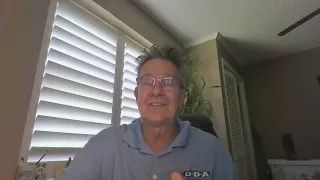As more seniors age alone, could reverse mortgages become key?
According to recent statistics, a higher number of American seniors are aging without a living spouse or biological children, raising questions about who will care for them if serious health issues or financial problems occur later in life.
Issues associated with “kinless” seniors were highlighted this week in a New York Times article. According to a cited study, roughly 6.6% of Americans aged 55 or older have no living spouse or biological children, and 1% lack a spouse, partner, children or biological siblings. These figures translate to nearly 1 million seniors who are aging without a spouse, partner, children or siblings, and roughly 370,000 are women at or over the age of 75.
“Several demographic factors have fostered increased kinlessness,” according to the Times. “Baby boomers have lower marriage rates and higher divorce rates than their parents, and more have remained childless. The rise of so-called gray divorce, after age 50, also means fewer married seniors, and extended life spans can make for more years without surviving family.”
Reverse mortgage professionals have often said that the product may be more efficient for borrowers who do not intend to leave their homes to an heir, but if family is in the mix, then there may be an inclination to do so.
Shai Akabas, director of economic policy at the Bipartisan Policy Center (BPC), voiced a similar opinion to RMD in a 2021 interview.
“Despite ads attempting to explain reverse mortgages, people struggle to wrap their heads around the relatively complex product. HELOCs, for example, are easier to understand,” Akabas said. “The bequest motive is strong—people often want to keep their residence in the family.”
Reverse mortgage professionals have also historically looked to older divorced homeowners as a potential path for business growth. After the general upheaval that can accompany a divorce, a reverse mortgage can be strategically deployed to sort out finances, according to Christina Harmes Hika, a reverse mortgage professional in San Diego.
“A reverse mortgage can really be a great tool during a divorce to help achieve both spouses’ goals,” Harmes Hika said in a 2019 interview. “My approach with all clients is to listen first for understanding, and I think that’s even more important in a divorce situation.”
Have A Question?
Use the form below and we will give your our expert answers!
Reverse Mortgage Ask A Question
Start Your Loan
with DDA todayYour local Mortgage Broker
Mortgage Broker Largo See our Reviews
Looking for more details? Listen to our extended podcast!
Check out our other helpful videos to learn more about credit and residential mortgages.





